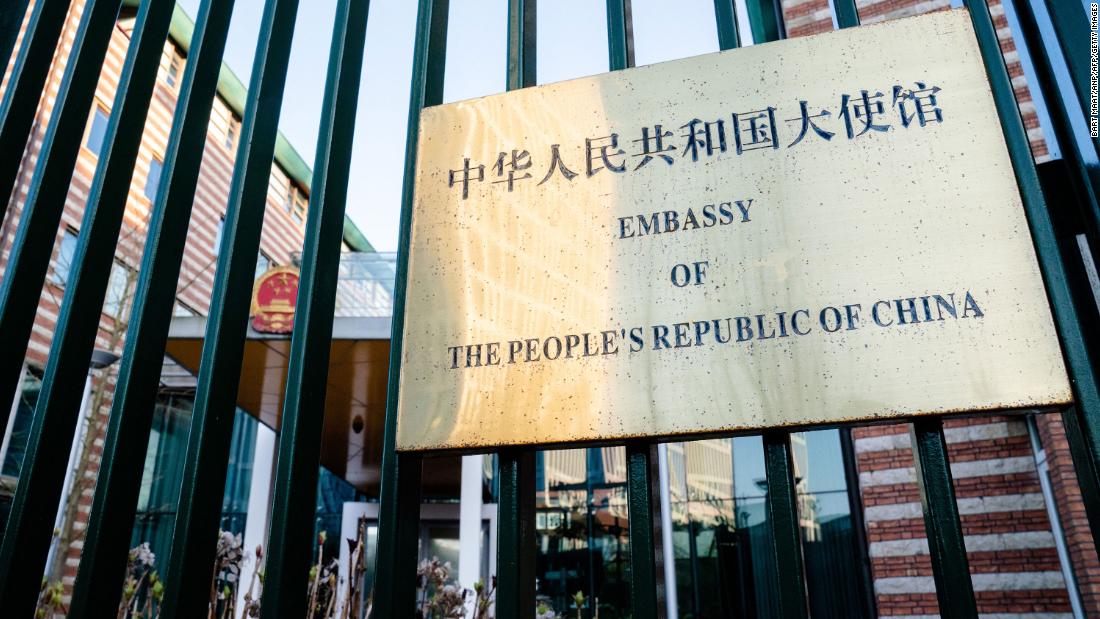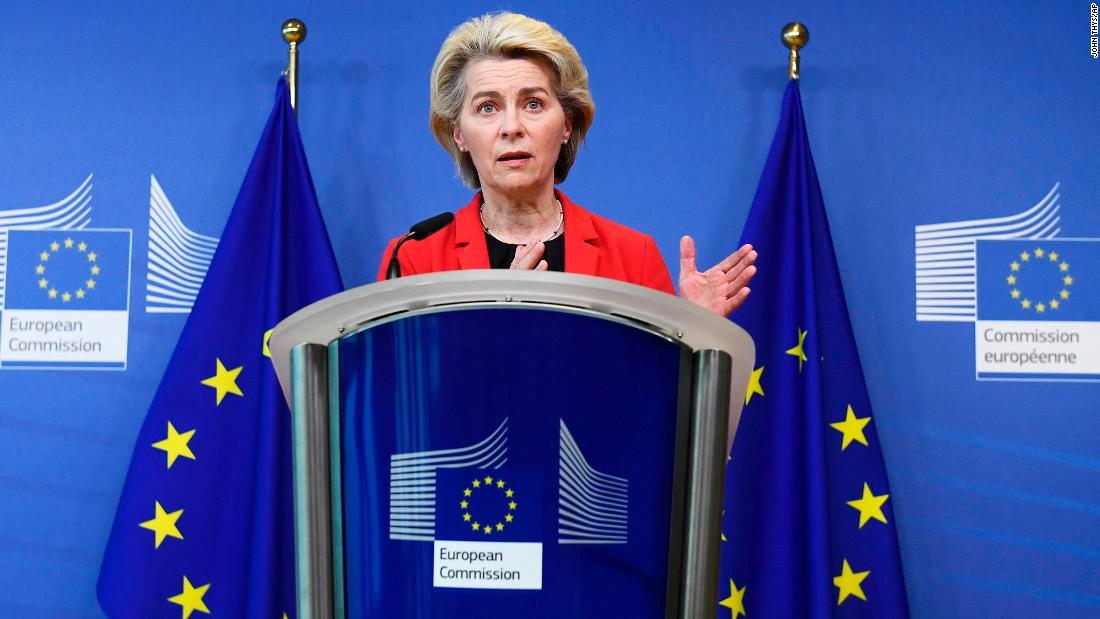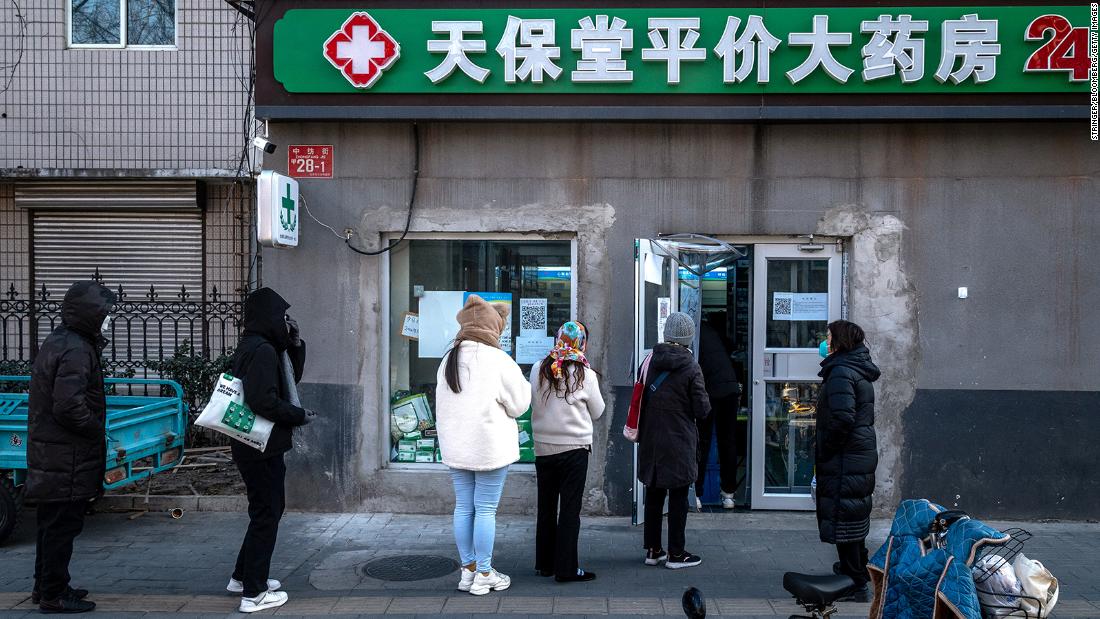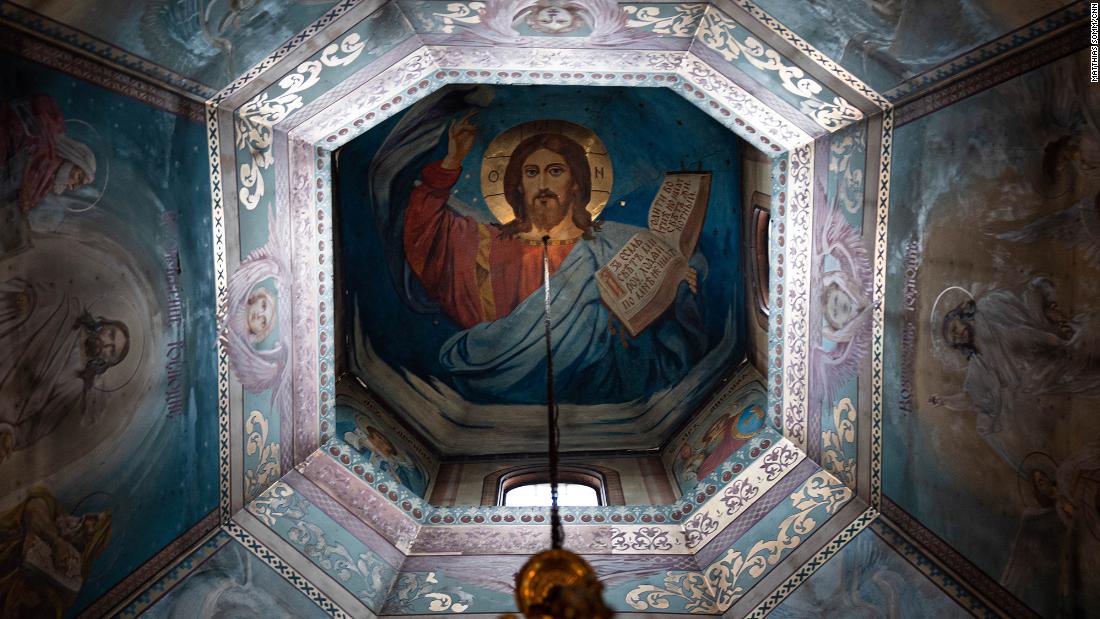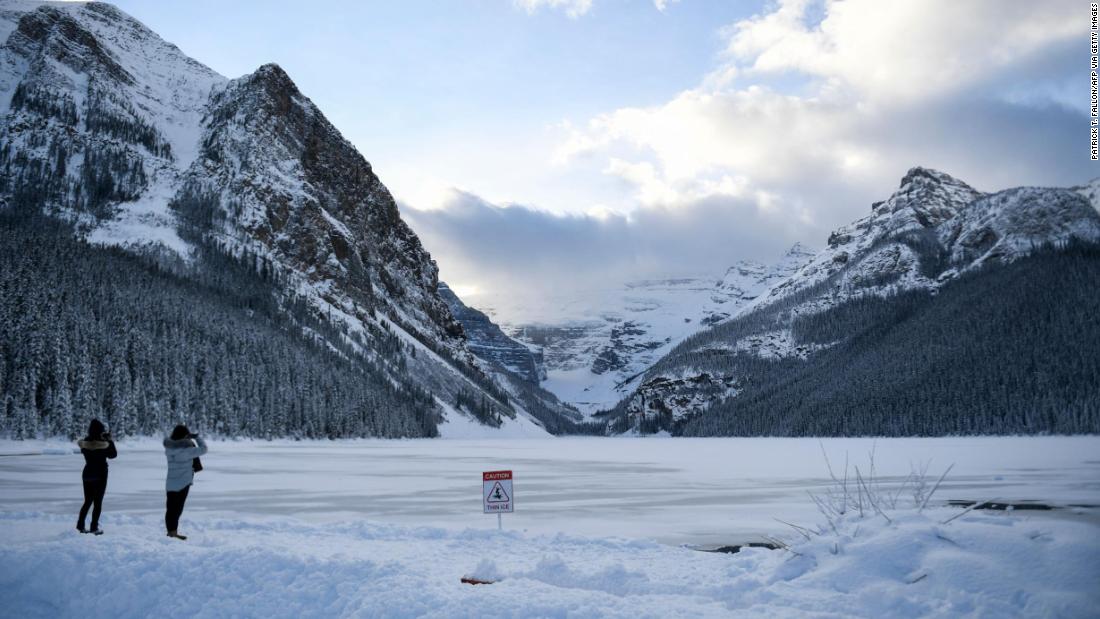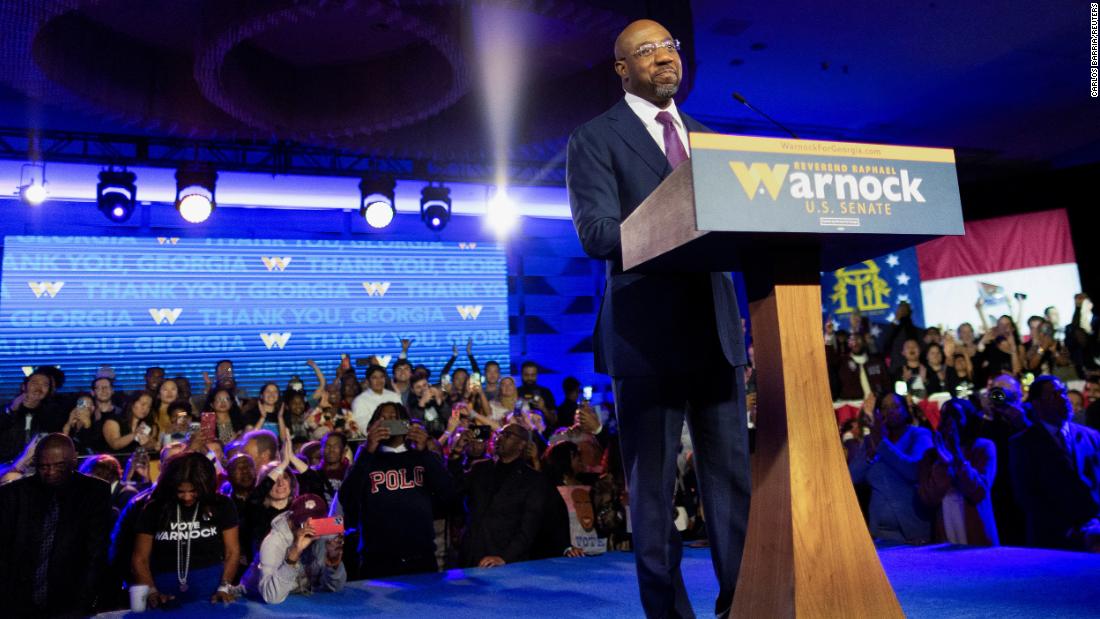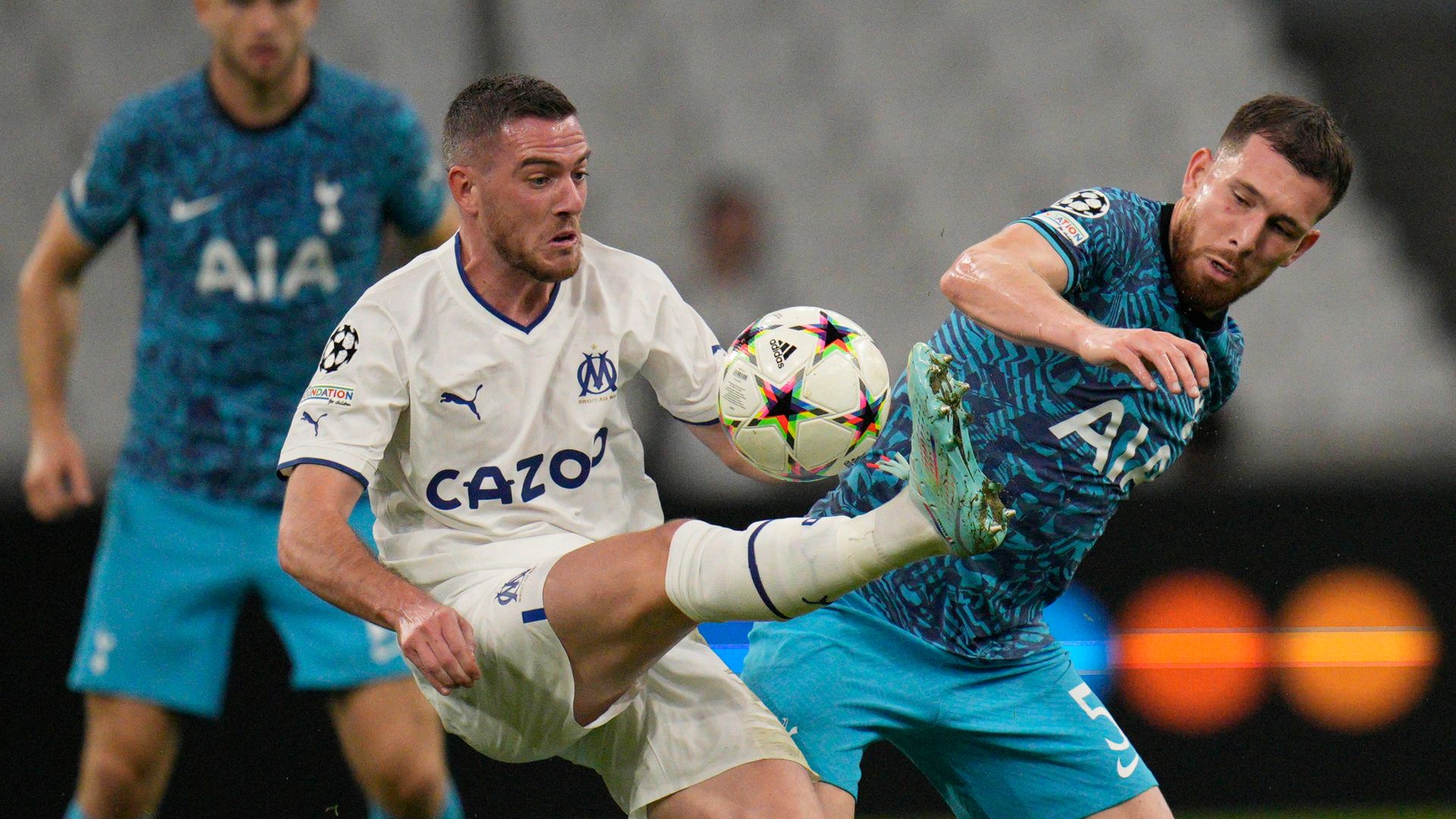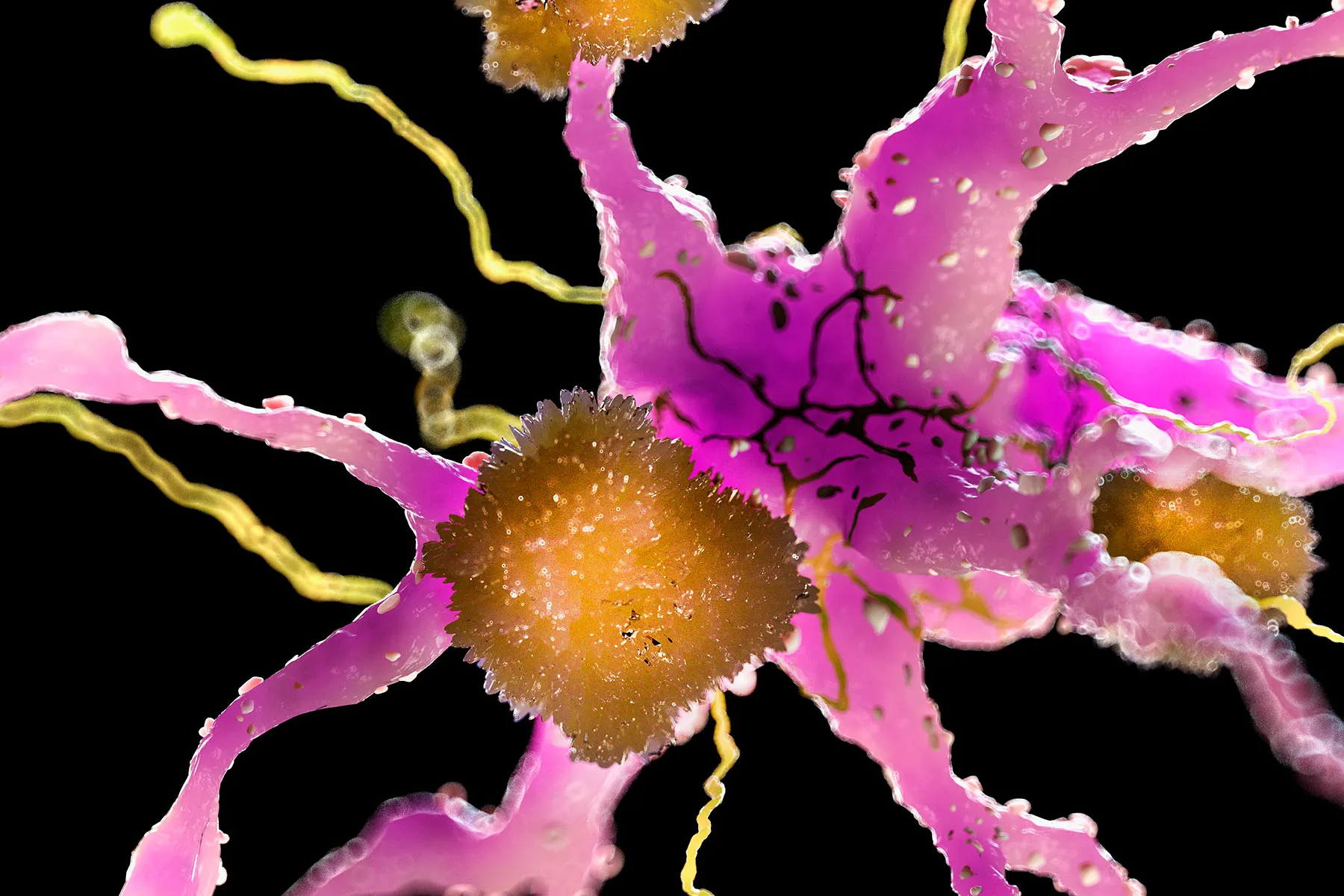Ukraine rejects Russia's demand to surrender Mariupol
4 min agoRussia likely to prioritize encircling Kyiv over the coming weeks, UK defense ministry saysFrom CNN’s Sarita HarilelaAn attack in the Podilskyi district of Kyiv, Ukraine, on March 18. (Emin Sansar/Anadolu Agency/Getty Images)Russian forces are likely to prioritize attempting to encircle Kyiv over the coming weeks, the UK Ministry of Defence said in its latest intelligence update on Monday.“Despite the continued lack of progress, Kyiv remains Russia’s primary military objective,” the ministry said, and “heavy fight continues north of Kyiv."Russian forces advancing on the capital from the northeast have stalled, while forces advancing from the direction of Hostomel city to the northwest have been repulsed by “fierce Ukrainian resistance,” the ministry said.The bulk of Russian forces remain more than 15 miles (25 kilometers) from the center of the capital, the ministry added.27 min agoAnalysis: Inside Russia, a campaign gathers steam against fifth columnists and life under the "Z"Analysis from CNN's Nathan HodgeRussian President Vladimir Putin attends a concert marking the eighth anniversary of Russia's annexation of Crimea at the Luzhniki stadium in Moscow, Russia, on March 18. (Alexander Vilf/AFP/Getty Images)Look at Moscow through the lens of Russian state television, and everything seems to be going swimmingly for President Vladimir Putin.On Friday, the Kremlin leader attended a concert at the capital's Luzhniki stadium to mark the eighth anniversary of Russia's annexation of Crimea from Ukraine. The show, in effect, was a pep rally for Putin's war in Ukraine.Putin appeared in front of a flag-waving crowd in front of a podium that read, "Zа мир без нацисма" -- "For a world without Nazism" -- a sort of marketing slogan-slash-propaganda case for the Russian invasion of Ukraine.The slogan even made use of the letter "Z," which is morphing into the official symbol of support for Putin's war: the Cyrillic letter "З" in the slogan was replaced by a Z, evoking the markings first spotted on Russian military vehicles ahead of the Feb. 24 invasion.For those Russians who don't support the war, life under the sign of the 'Z' is becoming increasingly grim.Take a look at social media posts by some opposition activists. On March 16, Olga Misik — a youthful activist best known for reading a copy of Russia's constitution in front of riot police at an anti-government demonstration — posted a photo of a Z spray-painted in white on her apartment door.Another democratic activist posted a similar photo on Friday, the Z tag spray-painted in black along with graffiti accusing them of being an "enemy of the people."But why the vitriol, if everything — as Putin reassures his people — is going to plan?Read the full analysis:33 min agoInvasion could worsen food crisis in the Middle East and North Africa, says Human Rights WatchFrom CNN's Mohammed Tawfeeq in LvivA Sudanese woman buys vegetables at the Al-Khaimah market in Khartoum's Arkawit district on March 17 as food prices rise across Sudan and the region due to the conflict in Ukraine. (Ashraf Shazly/AFP/Getty Images)The Russian invasion of Ukraine could worsen the food crisis in the Middle East and North Africa, the US-based Human Rights Watch (HRW) warned in a statement Monday."Both Ukraine and Russia are leading exporters of agricultural products to many Middle Eastern and North African countries, and disruptions related to the war are already exacerbating already-rising food prices and deepening poverty," the statement said."Global food chains demand global solidarity in times of crisis," said Lama Fakih, the executive Middle East and North Africa director at HRW. "Without concerted action to address the supply and affordability of food, the conflict in Ukraine risks deepening the world's food crisis, particularly in the Middle East and North Africa."The Ukrainian government banned exports on key agricultural goods, including wheat, corn, grains, salt and meat, according to a cabinet resolution that passed on March 9.HRW said even if the supply chain disruptions are resolved soon, the problems would likely continue "because farmers are fleeing the fighting and the conflict is destroying infrastructure and equipment." The fighting could also diminish the coming harvest.Some context: Combined, Russia and Ukraine are responsible for almost 30% of global wheat exports, according to Gro Intelligence, an agricultural data analytics firm.Ukraine had been on track for a record year of wheat exports prior to the invasion, while Russia's wheat exports were slowing, according to the US Department of Agriculture.1 hr 8 min agoNew Zealand to provide non-lethal military aid to UkraineFrom CNN's Isaac YeeNew Zealand will provide “non-lethal military assistance” to Ukraine, according to a statement from the government Monday.“New Zealand will provide a further $5 million (US $3.4 million) contribution of non-lethal military assistance to support Ukraine and are making available a
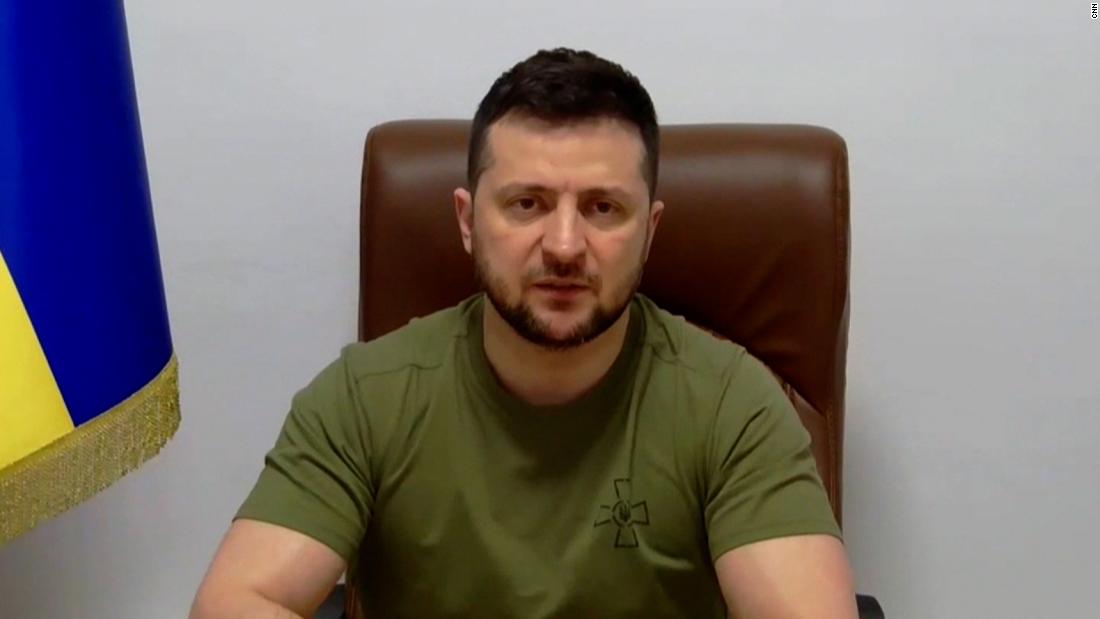
Russia likely to prioritize encircling Kyiv over the coming weeks, UK defense ministry says
From CNN’s Sarita Harilela
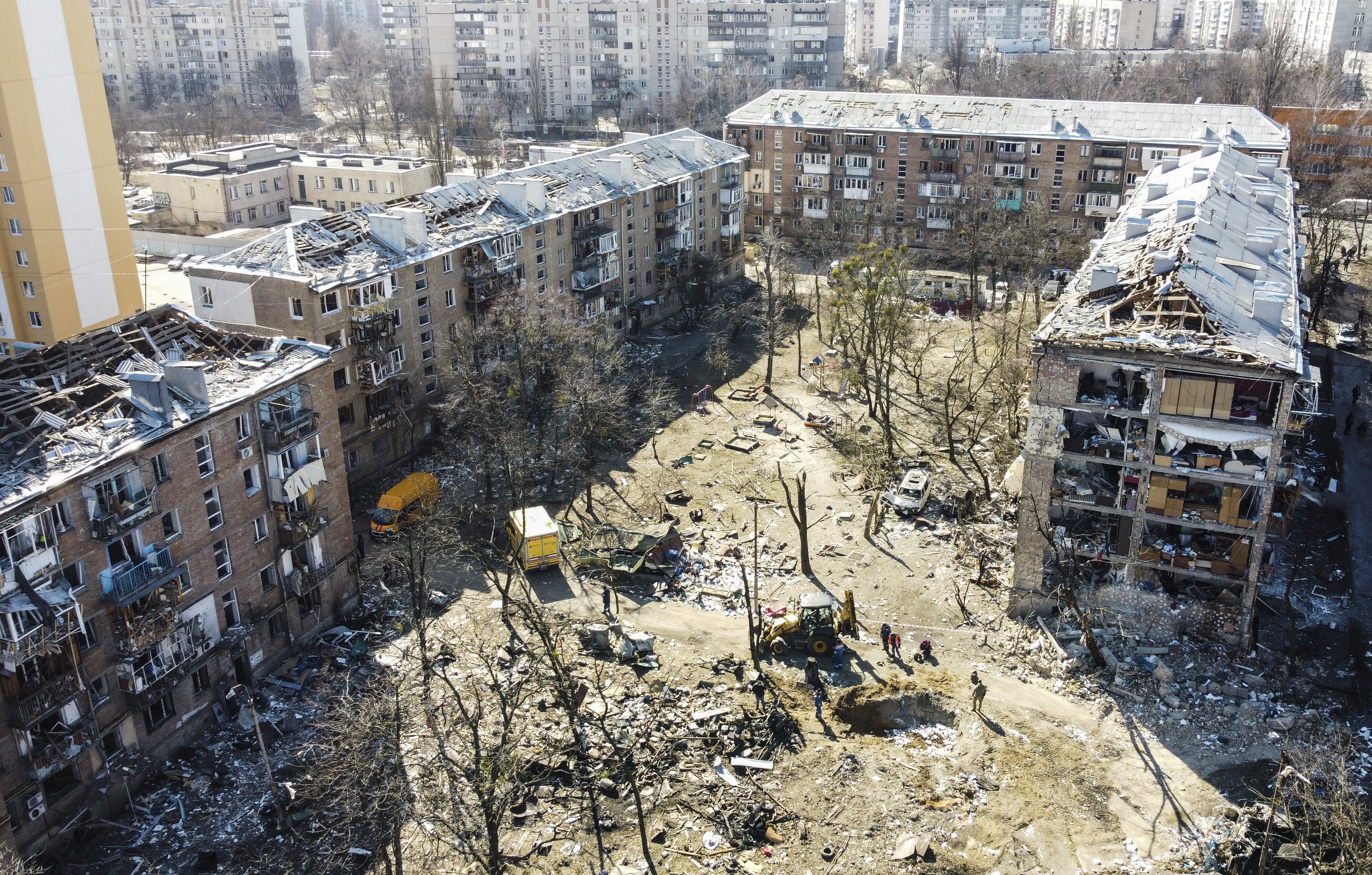
Russian forces are likely to prioritize attempting to encircle Kyiv over the coming weeks, the UK Ministry of Defence said in its latest intelligence update on Monday.
“Despite the continued lack of progress, Kyiv remains Russia’s primary military objective,” the ministry said, and “heavy fight continues north of Kyiv."
Russian forces advancing on the capital from the northeast have stalled, while forces advancing from the direction of Hostomel city to the northwest have been repulsed by “fierce Ukrainian resistance,” the ministry said.
The bulk of Russian forces remain more than 15 miles (25 kilometers) from the center of the capital, the ministry added.
Analysis: Inside Russia, a campaign gathers steam against fifth columnists and life under the "Z"
Analysis from CNN's Nathan Hodge
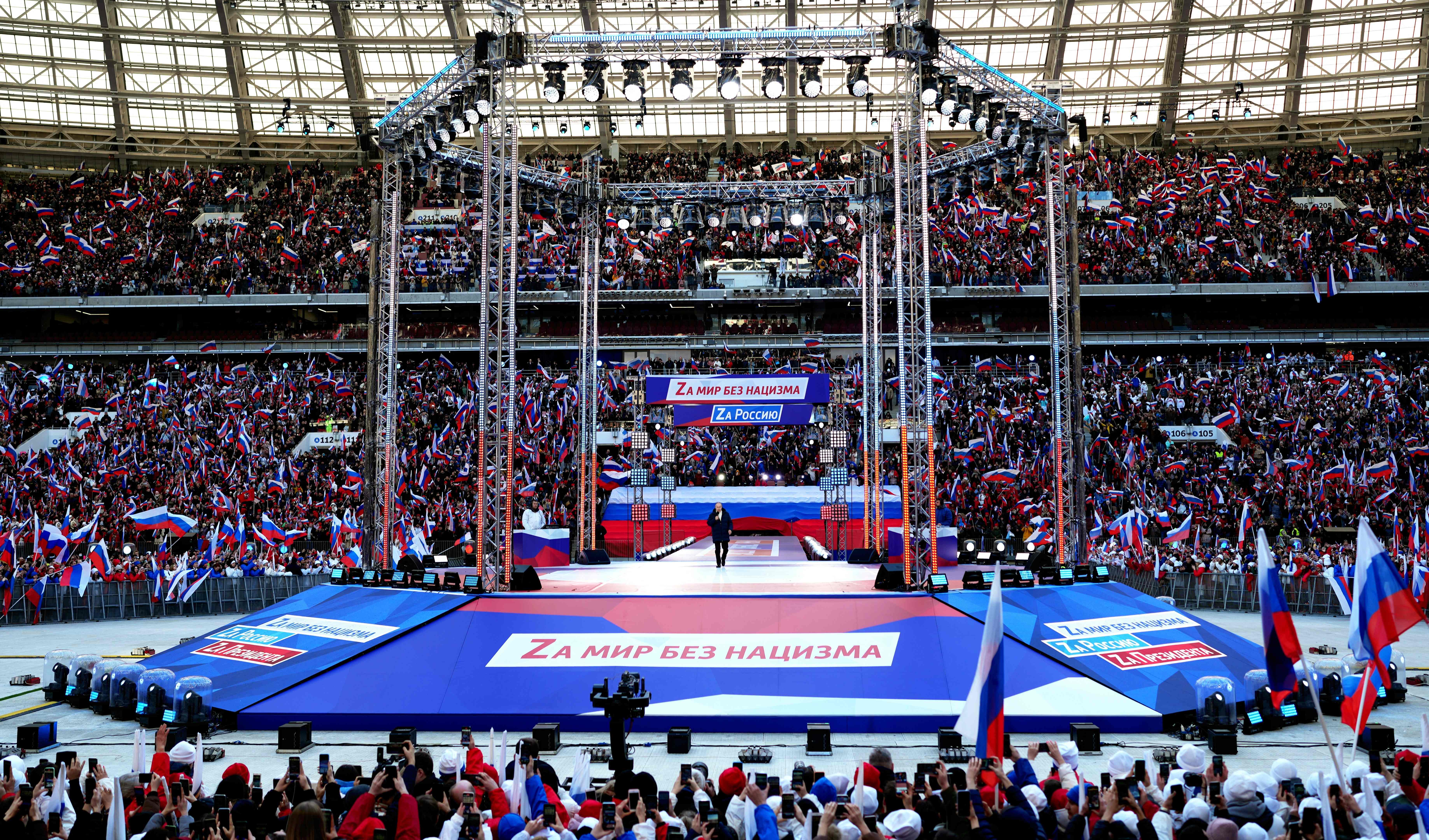
Look at Moscow through the lens of Russian state television, and everything seems to be going swimmingly for President Vladimir Putin.
On Friday, the Kremlin leader attended a concert at the capital's Luzhniki stadium to mark the eighth anniversary of Russia's annexation of Crimea from Ukraine. The show, in effect, was a pep rally for Putin's war in Ukraine.
Putin appeared in front of a flag-waving crowd in front of a podium that read, "Zа мир без нацисма" -- "For a world without Nazism" -- a sort of marketing slogan-slash-propaganda case for the Russian invasion of Ukraine.
The slogan even made use of the letter "Z," which is morphing into the official symbol of support for Putin's war: the Cyrillic letter "З" in the slogan was replaced by a Z, evoking the markings first spotted on Russian military vehicles ahead of the Feb. 24 invasion.
For those Russians who don't support the war, life under the sign of the 'Z' is becoming increasingly grim.
Take a look at social media posts by some opposition activists. On March 16, Olga Misik — a youthful activist best known for reading a copy of Russia's constitution in front of riot police at an anti-government demonstration — posted a photo of a Z spray-painted in white on her apartment door.
Another democratic activist posted a similar photo on Friday, the Z tag spray-painted in black along with graffiti accusing them of being an "enemy of the people."
But why the vitriol, if everything — as Putin reassures his people — is going to plan?
Read the full analysis:
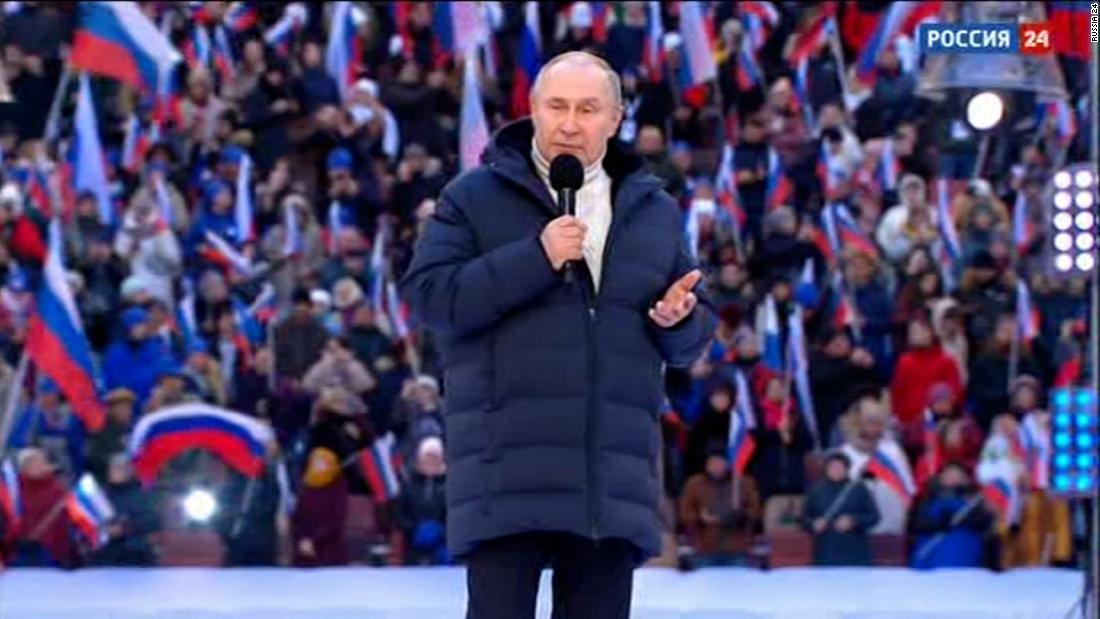
Invasion could worsen food crisis in the Middle East and North Africa, says Human Rights Watch
From CNN's Mohammed Tawfeeq in Lviv
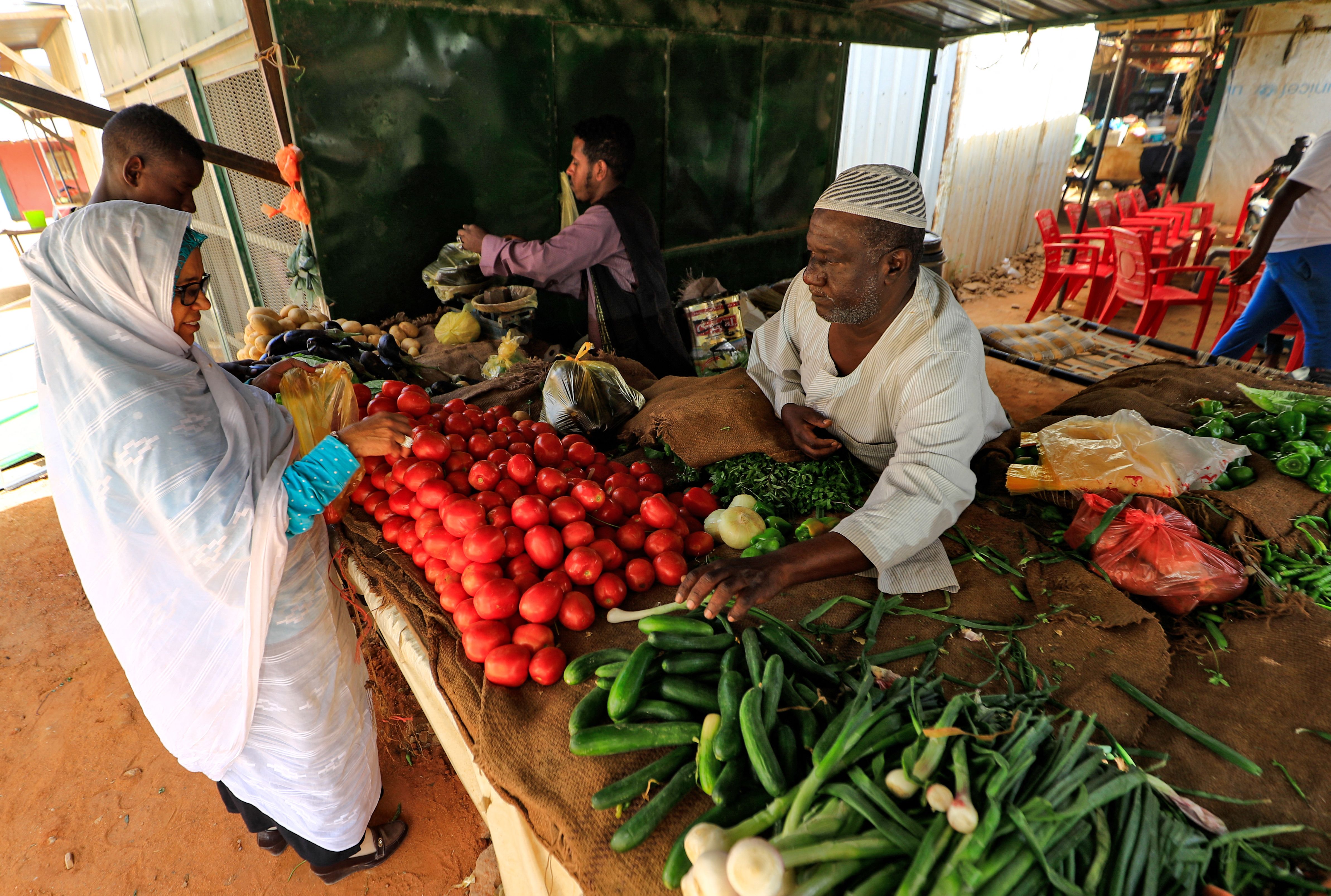
The Russian invasion of Ukraine could worsen the food crisis in the Middle East and North Africa, the US-based Human Rights Watch (HRW) warned in a statement Monday.
"Both Ukraine and Russia are leading exporters of agricultural products to many Middle Eastern and North African countries, and disruptions related to the war are already exacerbating already-rising food prices and deepening poverty," the statement said.
"Global food chains demand global solidarity in times of crisis," said Lama Fakih, the executive Middle East and North Africa director at HRW.
"Without concerted action to address the supply and affordability of food, the conflict in Ukraine risks deepening the world's food crisis, particularly in the Middle East and North Africa."
The Ukrainian government banned exports on key agricultural goods, including wheat, corn, grains, salt and meat, according to a cabinet resolution that passed on March 9.
HRW said even if the supply chain disruptions are resolved soon, the problems would likely continue "because farmers are fleeing the fighting and the conflict is destroying infrastructure and equipment." The fighting could also diminish the coming harvest.
Some context: Combined, Russia and Ukraine are responsible for almost 30% of global wheat exports, according to Gro Intelligence, an agricultural data analytics firm.
Ukraine had been on track for a record year of wheat exports prior to the invasion, while Russia's wheat exports were slowing, according to the US Department of Agriculture.
New Zealand to provide non-lethal military aid to Ukraine
From CNN's Isaac Yee
New Zealand will provide “non-lethal military assistance” to Ukraine, according to a statement from the government Monday.
“New Zealand will provide a further $5 million (US $3.4 million) contribution of non-lethal military assistance to support Ukraine and are making available a range of surplus defense equipment to share with Ukraine at their request,” the statement said.
The military package will include 1,066 body armor plates, 473 helmets, and 571 camouflage vests and harness webbing.
“This is the first time New Zealand has provided direct funding to a third party organization for non-lethal military assistance of this kind, and underscores the importance of rejecting any actions which have adverse consequences for state sovereignty, and that we must defend in every way we can, the democratic institutions and principles that New Zealand so deeply believes in,” Prime Minister Jacinda Ardern said.
New Zealand’s Defense Force is now “working urgently on the details of how this much needed equipment will be swiftly delivered to Ukraine,” Foreign Minister Nanaia Mahuta said.
Some context: New Zealand added an additional 364 Russian political and military targets to a travel ban list on Friday. Also, 13 individuals and 19 entities were added to a sanctions list which included asset freezes. Those on the list include Russian President Vladimir Putin and Foreign Minister Sergey Lavrov.
Russia could be losing ground in battle for Mykolaiv, but it still seeks to crush what it cannot have
From CNN's Nick Paton Walsh, Brice Laine, Maryna Marukhnych and Natalie Gallón in Posad-Pokrovske, Ukraine
This is the final bus out of the last position Ukraine holds on the road to Kherson — the first and only city Russia has taken.
Villagers have standing room only, while the elderly have been rushed into a van.
"Grandpa, we are here," shouts the daughter of one local, Viktor, from the bus doorway, as he sits a little bewildered in the van. The panic is real; at any moment the shelling could resume, a bombardment that residents say has littered the southern Ukrainian village of Posad-Pokrovske with cluster munitions.
As the convoy of two vehicles hits the pockmarked road out toward the city of Mykolaiv, shells once again tar the horizon with a plume of black smoke. Sat in the back of the van, Vitali breaks down, using his grimy, orange workman's gloves to wipe tears from his eyes.
"Civilians! They killed all the people, these are bastards, these are reptiles, parasites," he says. "They don't fight troops, they fight people. Do you understand? Kill everyone. Worse than the fascists."
Airstrikes, grad rockets, cluster munitions — the residents recall two weeks of intense bombardment to which the fabric of Posad-Pokrovske bears witness.
The Ukrainian marines holding Posad-Pokrovske, the last settlement before the Russian positions that defend Kherson's airport, remain vague about their positions.
But their goal is clear: the airport outside Kherson, used as a Russian base, that is already being heavily battered by Ukrainian shelling.
Read the full story:
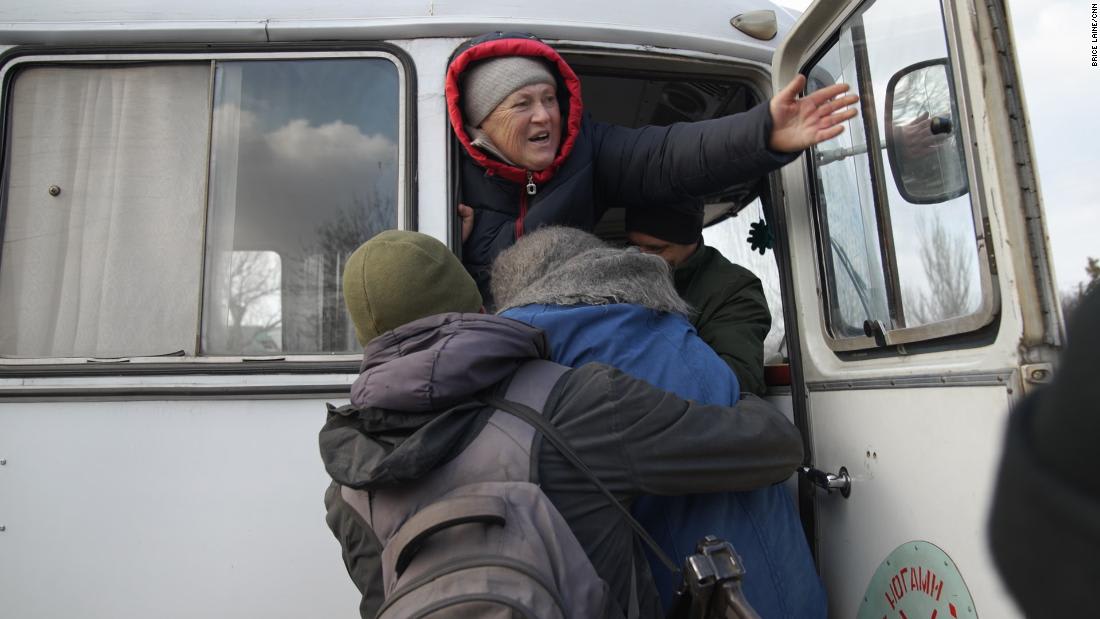
Analysis: The Ukraine war is now a "bloody stalemate"
Analysis from CNN's Stephen Collinson
Ukrainian President Volodymyr Zelensky is issuing his most fervent appeal yet for ceasefire talks with Vladimir Putin, but the so-far immovable Russian President is delivering a ruthless response by escalating atrocities against civilians.
Zelensky told CNN Sunday he is ready to talk to Putin at any time. His offer came more than three weeks into a war that appears to be entering a new, more deadlocked stage on the battlefield.
And while that counts as an extraordinary military success for outgunned Ukraine, it will also leave its cities and people even more vulnerable to brutal Russian bombardments, as seen Sunday when Russian bombs slammed into an arts school in besieged Mariupol where hundreds of people had been sheltering from the fighting, according to city officials.
"It's a stalemate. But we should note it's a bloody stalemate," ex-CIA Director David Petraeus, a retired general who served in Iraq and Afghanistan, said on CNN's "State of the Union" on Sunday. "Also, arguably, it's a battle of attrition."
The onslaught against civilians appears to be both a deliberate attempt by Moscow to break Ukraine's remarkable morale and resistance — and to bomb an independent, sovereign nation, which Putin says has no right to exist, to smithereens to crush its dreams of joining the West.
Western governments have responded by pouring anti-tank and anti-aircraft missiles into Ukraine in what is now a proxy war with Russia, which would have seemed an unbelievable prospect only a few weeks ago.
Read the full analysis:
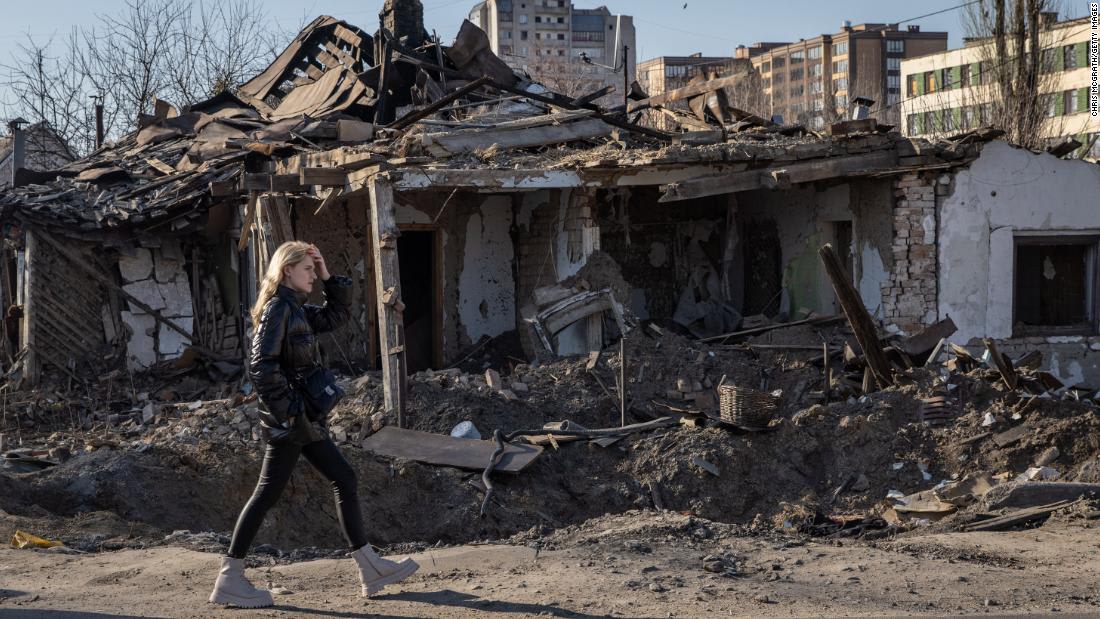
Sumy governor warns of chemical leak at damaged plant
From CNN's Angus Watson
A chemical plant damaged by Russian shelling is leaking ammonia, contaminating a zone 1.5 miles (2.5 kilometers) around the facility, according to the governor of Sumy in northeastern Ukraine early Monday morning.
In posts to Facebook and Telegram, Dmytro Zhyvytsky warned the downwind village of Novoselytsia was at risk. The city of Sumy is unlikely to be affected due to the direction of the wind, he said.
The plant’s emergency personnel and the State Emergency Service are responding to the leak, Zhyvytsky wrote.
Some context: Sumy, close to the Ukrainian-Russian border, has been subjected to intense, daily Russian airstrikes. On Sunday, Zhyvytsky said 71 children from an orphanage in Sumy were evacuated to safety after spending two weeks in a basement sheltering from Russian shelling.
Inside the Kyiv junkyard that recycles Russian weapons for Ukrainian forces
From CNN's Vasco Cotovio and Frederik Pleitgen
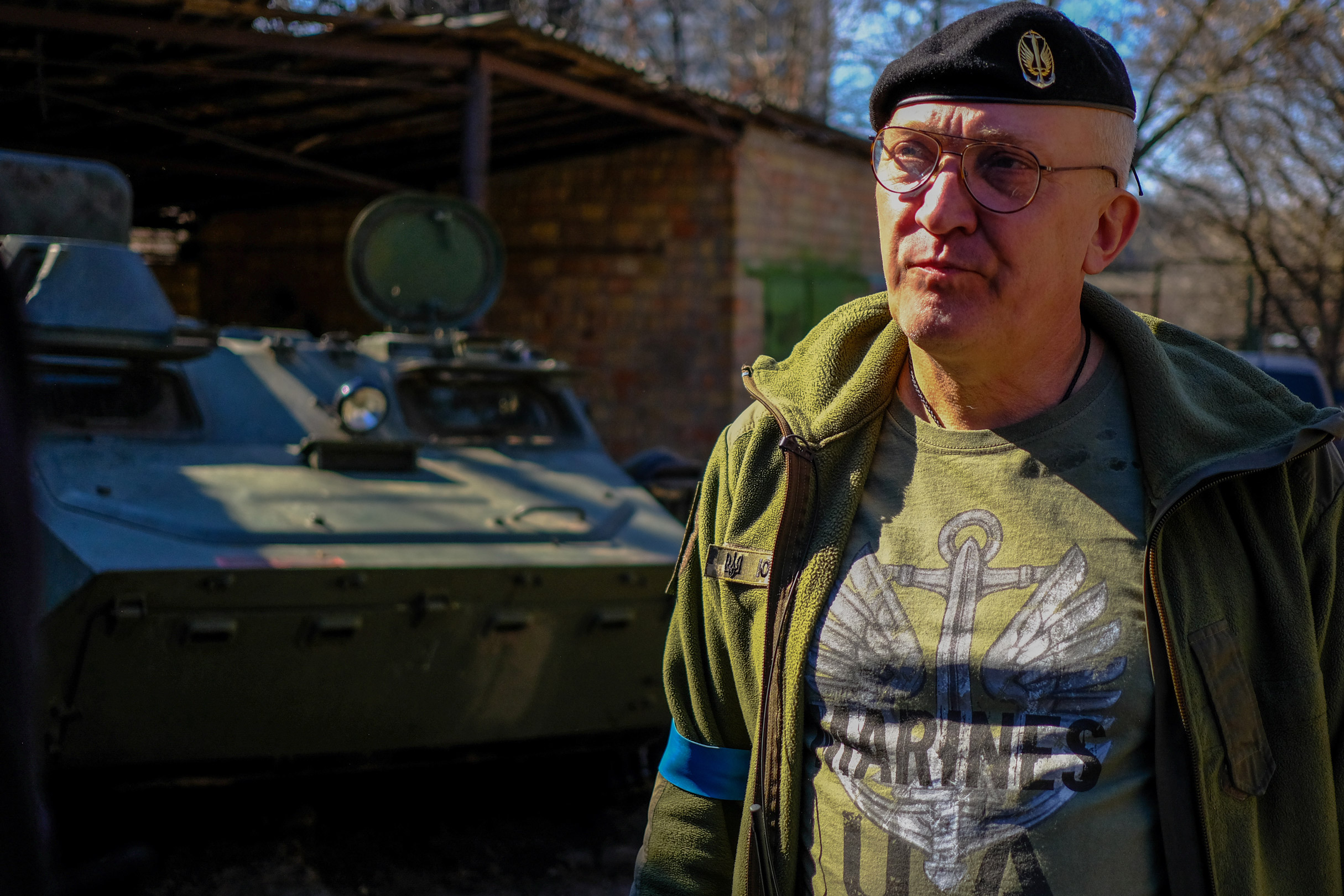
Retired Ukrainian seaman Yuri Golodov is playing a key role in repurposing military equipment abandoned by the Russian army — or captured from it by Ukrainians amid Russia's invasion.
The deputy commander of one of Ukraine's Territorial Forces, Golodov leads a team working at a military junkyard at an undisclosed location in Kyiv, repairing and repainting Russian military equipment for use by Ukrainian forces.
"Everything that we take away from the Russian army, we transfer to the armed forces of Ukraine," he told CNN.
"Last night we sent the Ukrainian armed forces 24 Uragan missiles that were on their way here to fly over our cities," he said. "We captured them intact, gave them to the Armed Forces of Ukraine at night and now the Ukrainian army has fired missiles back at them."
When CNN visited the junkyard, Ukrainian forces were stripping bare an artillery support vehicle, used to spot targets.
The Ukrainian flag had been painted over Russian military symbols, and Golodov's unit was removing communications equipment before sending it back onto the front line.
"We're going to use it to transport the wounded," he says.
Golodov says his battalion is also responsible for capturing some of the equipment in the yard.
"We are special forces battalion of deep reconnaissance which works behind enemy lines," he explains. "Our task is to destroy the provision of the Russian army — ammunition, fuel, food."
Read the full story:
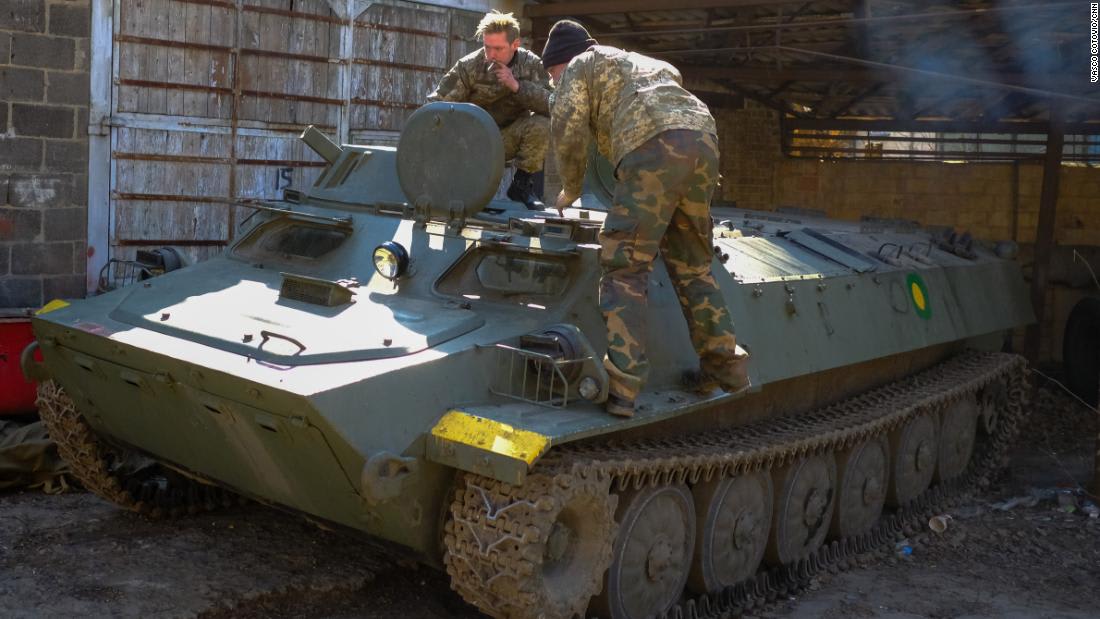
It's 6 a.m in Kyiv. Here's what you need to know
A deadline Moscow gave Ukrainian officials in the besieged city of Mariupol to surrender to Russian forces passed at 5 a.m. Moscow time, with Ukraine rejecting the ultimatum. Meanwhile, at least one person was killed after an explosion in the Ukrainian capital of Kyiv.
Here are the latest updates from the war in Ukraine:
Ultimatum rejected: The Ukrainian government and Mariupol city authorities rejected terms set out by Russia demanding they surrender the besieged southern city to Russian forces. A 5 a.m. Moscow (10 p.m.ET) deadline came and went. "There can be no discussion of any surrender or of laying down arms,” Ukraine's
Mariupol art school bombing: An adviser to the mayor of Mariupol said officials in the city are struggling to find out exactly how many people survived after an art school was bombed by Russian forces Sunday morning. Many people were hiding in the school that was acting as a shelter. An earlier estimate from the city council put the number sheltering in the school building at 400. About 7,295 people fled from the city Sunday through evacuation corridors, Vereshchuk said.
Zelensky open to talks with Putin: Ukrainian President Volodymyr Zelensky said he is ready to negotiate with Russian President Vladimir Putin, but warned that if any negotiation attempts fail, it could mean the fight between the two countries would lead to "a third World War." “I’m ready for negotiations with him. I was ready for the last two years. And I think that without negotiations, we cannot end this war,” Zelensky told CNN.
On the ground: At least one person was killed after an explosion in the Ukrainian capital's Podilskyi district Sunday. A shopping center and cars in an adjacent parking lot caught fire following the Russian bombardment, Ukraine's emergency service said. Meanwhile, Russian troops in southern Ukraine are “still attempting to circumvent (the southern city of) Mykolaiv as they look to drive west towards Odessa,” the British Ministry of Defense said. Russian naval forces, it said, "continue to blockade the Ukrainian coast and launch missile strikes on targets across Ukraine."
Ukraine summits: US President Joe Biden and fellow world leaders will hold a set of emergency summits in Europe this week. But few observers believe anything they can agree upon will be enough to end the bloodshed in Ukraine. Biden has "no plans" to visit Ukraine, the White House says, but he will travel to Warsaw, Poland following meetings with NATO allies, G7 and European Union leaders.

 Landwebs
Landwebs 







